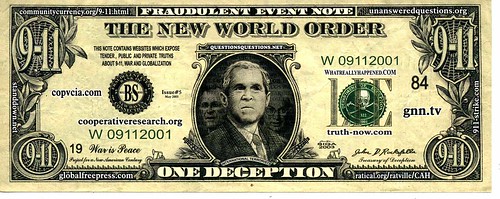"For almost a century, the estate tax affected only the richest 1 or 2 percent of citizens, encouraged charity, and placed no burden on the vast majority of Americans," [Michael Graetz and Ian Shapiro in "Death By A Thousand Cuts"] wrote. "A law that constituted the blandest kind of common sense for most of the twentieth century was transformed, in the space of little more than a decade, into the supposed enemy of hardworking citizens all over this country."
The secret of the repeal movement's success has been its appeal to principle over economics. While repeal opponents bellowed that only the richest of the rich would ever pay the estate tax, proponents appealed to Americans' sense of fairness, that individuals have the natural right to pass on their wealth to their children.
– Erosion of Estate Tax Is a Lesson in Politics: A Break for the Well-to-Do Becomes an Everyman Issue
A favorite tactic of the tax hate speech movement is to lump upper crust interests with middle class aspirations, as if everyone belonged to the same country club.
The Party in Power uses this technique to stoke outrage over the injustice of the so-called death tax when it ropes
Idaho ranch families into fronting for the heirs of the Mars and Gallo fortunes.
You can also see this at its most base and simplistic on Rush Limbaugh's site, where the headline proclaims
Only the Rich Pay Taxes: Top 50% of Wage Earners Pay 96.03% of Income Taxes.
Before long, in bold red letters, we get to the real nubbin of his case: "The top 1% is paying more than ten times the federal income taxes than the bottom 50%!"
Sound outrageous? Let's unravel this brotherhood of the tax burdened. (For illustrations that follow, I'm relying on state income data from the
Minnesota Department of Revenue, rather than federal 2001 data used by Limbaugh. I don't think national wealth distribution should be wildly different.)
Only the rich pay taxes. This isn't close to true, a topic for another post. He's talking about income taxes here, conflating one tax into all taxes.
Top 50%. Since most people consider themselves above average, the top 50% aggregation neatly allows almost all his audience to include themselves among the rich. Using Minnesota data for 2002, the top 50% of household incomes started at $35.6k — just a bit short of rich, don't you think?
Wage Earners. Just as "taxes" transformed into income taxes, "the rich" are now humble wage earners like Rush, taking home their shrinking pay checks and hoping there's enough left to get through the week.
96.03% of Income Taxes. The top half of earners in 2001 did pay more federal income tax dollars than the bottom half. A whole lot more. To which I say, good for us. This shouldn't be surprising, because we're talking about tax dollars paid by
half the taxpayers, not paid on half the nation's
taxable income.
For a sense of the difference, let's look at the Minnesota data. The bottom 50% of households earned incomes between zero and about $35k, while an equal number of people earned incomes from $35k well into the stratosphere.
Minnesota's population of 2,340,070 households can be divided into 10 groups of 234,007 households each. The lowest-earning households are in the first decile. The highest-earning are in the tenth. The amounts in the right column show the total income earned by that 10% of the population.
First Decile: $ 8,354 & under — $1.235B
Fifth Decile: $ 27,704 - $35,683 — $7.369B
Tenth Decile: $102,427 & over — $49.428B
But we don't get to the real rich until we slice into the top 10%:
Top 5%: $139,652 & over — $35.715B
Top 1%: $323,340 & over — $17.636B
The total income earned by Minnesota's bottom 50% was just under $21 billion, nearly $15B less than the top 5% earned. Income for the top 1% was roughly 8.5 times what the bottom 50% earned. So while the rich did pay more income tax, the actual proportions of taxes paid as a
percent of income are far from the "ten times" Limbaugh's statement implies. And once we take into account all forms of taxation, which fall disproportionately on lower income families, the difference evaporates. Unfortunately, the claim is what sticks.
If you can handle one more set of data, look at the numbers when the state's income is divided into deciles:
Income by Income Decile (2002)This table divides Minnesota's total household 2002 income of $127.3B into 10 equal amounts and shows the number of household incomes required to earn one-tenth of the total.
First Decile: $ 26,678 & under — 903,829 Households
Fifth Decile: $ 66,742 - $80,745 — 173,233 Households
Tenth Decile: $ 494,094 & over — 10,874 Households
Top 5%: $ 1,271,104 & over — 1,979 Households
Top 1%: $11,393,133 & over — 52 Households
It takes nearly a million of the lowest-earning households to come up with the first $12.7B, and just under 11,000 of the highest earners to account for a tenth. To put the "ain't it awful for the rich" talk in perspective, it took only 0.008% (1,979) of Minnesota households to account for 5% of the state's income. My calculator resorts to exponents when I try to figure the percentage of households that earn 1% of the total, but you get the idea.
The good folks in the $35k bracket might have different economic interests than other club members in the top 50%, but using percentages fuzzes things up nicely.
Next time: "It's Not the Money, It's the Principle of the Thing"




